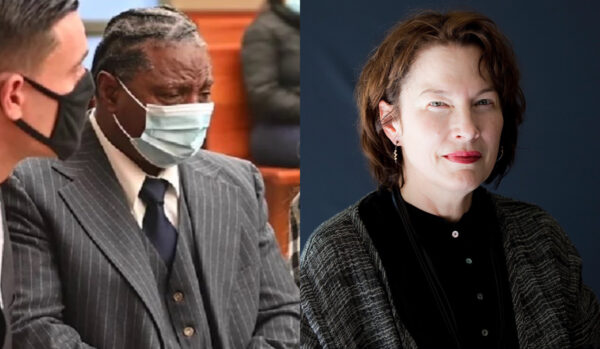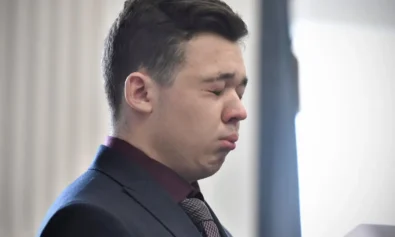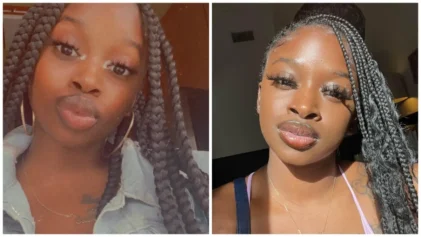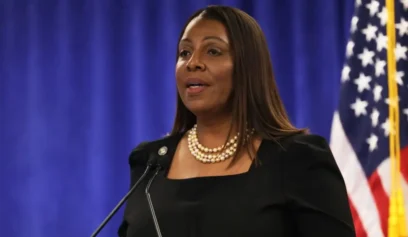A Syracuse man, wrongfully convicted of rape over 40 years ago, is set to receive a $5.5 million payout from the state of New York.
The man spent almost two decades in prison, while the woman went on to make millions off of the now-debunked sexual assault memoir that she published as a best-selling book.
After being exonerated in 2021 of the 1981 rape of Alice Sebold, who based her memoir “Lucky” on the alleged account, Anthony Broadwater, 62, hopes to be awarded a multi-million settlement for his wrongful conviction. As a result, the man spent 16 ½ years in state prison and 23 years on the sexual assault offender registry.

The State of New York had stalled the settlement, according to Syracuse.com, but in October 2022, Attorney General Letitia James said her desire was to get the deal done “soon.”
“So we’re reviewing that case, and I understand the injustice and hopefully we’ll reach a settlement with his attorneys soon,” James she said at the time.
David Hammond and Melissa Swartz, Broadwater’s attorneys, said the support for James helped the proposal move forward.
On Tuesday, Feb. 14, lawyers presented the proposed $5.5 settlement to a judge to push forward. A local assistant attorney general Bonnie Levy agreed that the settlement will be in the seven figures. However, she has not said this to Broadway under oath and did not demand it be a part of the court process.
The amount the exoneree will receive is substantially less than the original $50 million he and his team originally asked for.
Though Broadwater shared he was “thankful” for the award, he also bemoaned the last 40 years he lost while incarcerated for a crime he did not commit.
This is the first of two federal civil rights lawsuits he has filed against the Syracuse police and the county district attorney’s office.
Hammond said, “We still have a lot of work to do to hold those accountable [for his wrongful conviction].”
Broadwater’s arrest and conviction were odd, as several factors were at play in the early 80s.
First, Sebold identified a then-20-year-old Broadwater months after her sexual assault. She said she saw Broadwater, whom she said was her attacker, near the Syracuse University campus, and he was promptly arrested and prosecuted.
Sebold selected a different person in a police lineup, and later in her book “Lucky” said she believed Broadwater and the other man she picked tried to trick her and that’s why she made the wrong choice.
The reality is that Broadwater never met the individual in the lineup, and law enforcement also has no evidence or record that the two have worked together or knew each other.
This ruling was appealed, and an appellate court upheld the conviction, under the defense notion the five Black men in the police lineup looked alike.
The only evidence to connect Broadwater to the Sebold’s attack was a microscopic hair analysis, forensic matter the FBI has since debunked. Still, in 1982, a judge found the man guilty without a trial by jury.
Current Onondaga County district attorney, William Fitzpatrick, also pushed for his exoneration. He brought new evidence provided by Broadwater’s lawyers to State Supreme Court Justice Gordon Cuffy, who cleared him in 2021.
Years later, after writing about her role in helping him get convicted and after his exoneration, Sebold apologized to Broadwater. The apology was not given in person but in an open letter on Medium.com.
She wrote, “First, I want to say that I am truly sorry to Anthony Broadwater and I deeply regret what you have been through. I am sorry most of all for the fact that the life you could have led was unjustly robbed from you, and I know that no apology can change what happened to you and never will.”
The author, whose book has been removed from publication, continued to explain that at the time of the accusation, she was a young woman who put her “faith in the American legal system.”
Sebold said her “goal in 1982 was justice — not to perpetuate injustice.”
“I am grateful that Mr. Broadwater has finally been vindicated, but the fact remains that 40 years ago, he became another young Black man brutalized by our flawed legal system. I will forever be sorry for what was done to him,” the woman stated in the article.
A film based on the work also lost its financing, according to Variety magazine.
The executive producer of the film, Timothy Mucciante, left the project after discovering flaws in the conviction and evidence supporting Broadwater’s innocence. Mucciante was going to fund the movie through his Red Badge Films but did a complete about-face when he discovered more information about her story. He also played a role in getting authorities to re-examine Broadwater’s conviction.
Broadwater accepted Sebold’s apology and said he will not file any charges or sue her regarding the wrongful accusation, despite losing almost 40 years of his life. This included not being able to work at certain jobs or even have children because of his status as a sex offender.
In 2021, when his conviction was overturned, he said, “I wouldn’t bring children into this world because of this and now, we’re past (that) age. We can’t have children.”
The status of the second lawsuit has not been made public.


